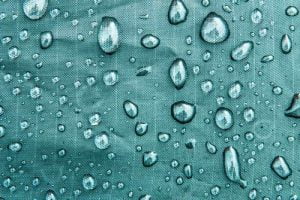Four Concrete Waterproofing Must Haves

The Importance of Terrain
If you’ve noticed water pooling in your basement in the Raleigh area, it makes sense to consider both the condition of your home’s gutters and the surrounding landscape. Since water drains downwards as a result of the force of gravity, some real estate owners discover landscaping improvements strongly impact their waterproofing needs. Most modern homebuilders strive to eliminate steep gradients which might direct runoff towards a home’s foundation. Unfortunately, in the past many developers did not always appreciate the importance of this issue.
For example, the slope of the land in a yard may cause rainwater and melting snow to drain away from the home, or not. People who reside in dwellings built into the sides of hills need to pay especially close attention to this issue. The runoff from melting ice and snow should ideally flow away from the foundation of your residence.
Pooling Water: Not Good For Building Foundations
When water collects around the foundation of a building, over the course of time this situation eventually causes damage. Water may penetrate through the ground around the foundation, causing it to become waterlogged. The successive freezing and thawing of the water may contribute to the formation of cracks in cement and masonry.
In some cases, water pooling against a home’s foundation eventually seeps into low lying parts of the residence. It may create moist, dank basements and crawl spaces. In some locations, the saturation of the soil surrounding a home’s perimeter ultimately produces flooding problems following heavy rains because the waterlogged earth cannot absorb additional water. For a variety of excellent reasons, you’ll want to prevent rain and runoff from collecting around your home’s foundation.
Why Landscaping Improvements Sometimes Impact Drainage
Today, most real estate properties include a variety of concrete or brick improvements. Driveways, sidewalks, patios and even porches (and decks) all enhance comfort and property values. Yet if you plan on installing or modifying any of these surfaces, it makes sense to pay attention to water runoff issues. You won’t want to inadvertently allow rain draining from these structures to collect around your home’s foundation and potentially contribute to water leaks inside the residence.
A waterproofing expert in some situations may recommend the construction of a French Drain, a trench drain, or a surface drain in the yard to help collect runoff and channel it away from the home. This measure can help correct or prevent the formation of soggy spots in the lawn. Most importantly, implementing better drainage also reduces the chance the soil immediately around the foundation will become waterlogged. By providing a way for water to flow away from the residence, a drain may help preserve the anticipated useful lifespan of the foundation.
Check Four Key Home Fixtures
Of course, to prevent rain from collecting around the foundation, maintaining a secure roofing system and clean gutters and downspouts remains vitally important. Yet you also should not overlook the impact of key improvements in your yard. If you discover some free time during this busy season, conducting a quick check of four structures on your grounds may prove helpful. Take a moment to closely observe these items:
- Driveways;
- Sidewalks (and Paved Walks);
- Patios;
- Porches and Decks.
Notice the slope of the surrounding land around each of these improvements. Then answer these questions:
- Does your residence sit on fairly level terrain or on a hillside?
- Will rainwater and runoff from melting ice and snow move towards your home’s foundation or away from it while leaving a driveway, sidewalk, patio, porch or deck?
- After a heavy rain, have you noticed runoff flowing away from your home to enter roadside gutters and drainage systems?
- Or does the water collect in pools along the sides of the house?
- Have cracks or holes developed in any improvements and started impacting water runoff in any way?
Assistance With Yard Drainage Issues
If you discover possible problems during your inspection, you may find it useful to consult with us. Raleigh Waterproofing Inc. offers a variety of services to help improve yard drainage. For example, we provide qualified French Drain construction, as well as other waterproofing measures. Contact us at 919-877-9969 for fast, experienced assistance.



